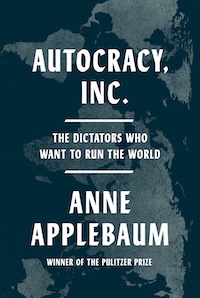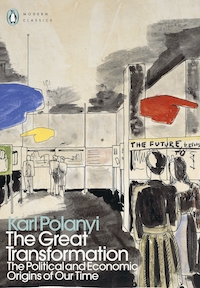Public ideas
The erosion of civility in the public sphere
Laura Tingle is not alone in observing that civil discourse has become much more uncivil in the last 40 years.
That erosion of civility is the theme of her John Button Oration. You can hear her deliver the oration on the ABC website (44 minutes), or, if you subscribe to The Monthly, you can read a transcript.
It’s easy to blame this erosion on social media, or the deceitful and divisive discourse of populist strongmen who have a loose relationship with the truth. (Tingle mentions Trump, but cautiously avoids mention of Dutton or Morrison, and makes only a passing reference to Abbott.) But she points out that this deterioration has been many years in the making.
She cites historical examples, and older Australians will remember publications such as The Truth, a precursor to Murdoch’s tabloids. These low-quality media have always been around, but we now seem to lack agreed standards about what constitutes quality media, and what constitutes acceptable civil discourse.
Some may say we now live in an age of political division, but Australian politics has always had a rough edge. Our present age is almost insipidly tame in comparison with the times of sectarian conflict, demonstrations against wars we shouldn’t have been involved in, and long industrial disputes involving standoffs between workers and corporations.
Our media were able to handle these conflicts in a civilized manner, Tingle points out, sometimes even with humour. (In this regard she tells a story about Button’s mischievous use of postcards).
But the conflicts of today seem to lead to more intractable standoffs, sledging, and fear campaigns, particularly when politicians opportunistically define issues in terms of identity.
She observes that a certain Manicheanism now dominates our public discourse. If you disapprove of the way the Israel government has responded to the slaughter of October 7, you must be on the side of Hamas, for example. “Many of our politicians don’t know how to dismount from simplistic binary arguments”, she writes. So too for journalists: largely missing are long pieces of analytical journalism, presenting the nuances of public policy.
Social media has played a role in this process, particularly in the way it has undermined the business model of traditional media. Journalists just don’t have the resources to turn out quality work:
Journalists without the time to research a particular policy area, or lacking a deep background knowledge, are working in an environment where the easiest thing to do is chase the political conflict over an issue, rather than explore what the government is doing about it.
In this landscape public media, particularly the ABC, plays a crucial role:
What the ABC must do is maintain a steady eye on what our audiences need to know, and what they should be provoked occasionally to hear, whether that is in the news division, in drama, in music – in every aspect of Australia’s community and cultural life.
In this oration Tingle provides some of her own media background, and you can read a more complete account of that background in the Wikipedia entry about her. It’s about as mainstream as you can get – The Financial Review, The Australian, The Age and the Sydney Morning Herald, and now the ABC – the last redoubt of quality journalism if it can withstand ongoing assaults from the Murdoch media and right-wing politicians. She notes the possibility that “in a few years, there may be no commercial free-to-air broadcasters in Australia”.
But where there are deaths there have also been births. It is notable, for example, that the transcript of her oration is published in The Monthly, one of Schwartz Media’s contributions to quality media.
The online world is far richer than social media. Michael West Media, Pearls and Irritations, The Conversation, are three I frequently link in these roundups. There are many specialized websites belonging to universities and research institutions, reaching out to the public, and these are generally of high quality. There are websites belonging to interest groups, usually with their own barrows to push, but we are better served by a site with a known bias than one that claims to be neutral.
Anti-democratic authoritarians are winning the propaganda war
Forget abut the dystopia described in Orwell’s Nineteen eighty-four, where the authoritarian state puts great effort into constructing a consistent but false narrative to justify itself. That may be a suitable allegory for Soviet Russia, closed behind an iron curtain, but technologies have moved on and, apart from North Korea, authoritarian regimes cannot isolate themselves from the outside world.
Writing in The Atlantic, Anne Applebaum describes how contemporary authoritarian regimes – Russia, China, Iran, Hungary – conduct a propaganda war aimed at undermining democracy, and they’re winning: The new propaganda war.
The Atlantic provides non-subscribers limited access behind its paywall, but the main content of that article, lacking some detail, is in a 26-minute interview on Phillip Adams’ Late Night Live.
These propaganda campaigns aim to discredit democracy. Within authoritarian regimes, democratic stirrings must be suppressed, and that suppression is helped by discrediting democracy generally, not only by spreading false stories about life in democracies, but even more effectively by working within democracies to weaken people’s trust in and support for democracy. Applebaum describes the strategy:
If people are naturally drawn to the image of human rights, to the language of democracy, to the dream of freedom, then those concepts have to be poisoned. That requires more than surveillance, more than close observation of the population, more than a political system that defends against liberal ideas. It also requires an offensive plan: a narrative that damages both the idea of democracy everywhere in the world and the tools to deliver it.
It’s even better for these regimes if they find movements within democracies wiling to do their work for them. In this regard she describes how the Russians have found allies in the MAGA movement in the USA, and have been helped by factions in the Republican Party that are “actively harassing legitimate good-faith efforts to track the production and dissemination of autocratic disinformation”.

She describes the many tactics employed to discourage democratic participation. One common approach is to overwhelm the public space with a deluge of misinformation. It doesn’t have to be consistent or even credible. In fact it’s more effective if it’s contradictory and confusing, because its aim is not to present a reasoned narrative (that’s old Soviet stuff), but to lead people to lose all faith in any idea of truth in the public realm (that’s postmodernism). It can be an effective way of making sure people stay out of politics.
Applebaum doesn’t go into Australian politics, but what she describes is chillingly reminiscent of the conduct of the “No” campaign in the Voice referendum. Flood the space with misinformation, disinformation and wild stories until any idea of the truth is submerged, and follow with a message “if you don’t know, vote no”. It also fits with Dutton’s inconsistent and confusing lines on immigration and housing, designed not to be understood as an alternative policy, but to contribute to confusion and mistrust in government.
Applebaum is author of the soon-to-be released book Autocracy, Inc: the dictators who want to run the world.
Karl Polanyi remembered
Around 1987, before there was any idea of buying books online, I borrowed Karl Polanyi’s 1944 work The Great Transformation: the political and economic origins of our time from the ANU Library. The library stamps inside the back cover revealed that I was the first person to have borrowed it since 1949. Up to that point many people had borrowed his book.

That record, stamped in the back of the well-worn book, is the story of the rise of Polanyi’s ideas, and their subsequent decline, before there came to be renewed interest over the last thirty years, for he had prophesized the path liberal capitalism was to take and was generally correct.
Polanyi observed that from time immemorial there were markets in human societies, but they had generally been governed by society’s norms of behaviour. He foresaw that after the war there would emerge in capitalist democracies the “market society”, in which society would become subservient to the rules and norms of the market. That was to be the great transformation.
He died in 1964, while the ideas of Ludwig von Mises and Friedrich Hayek, the founders of the “Austrian School”, were in ascendency, but he didn’t live to see the rise to power of Thatcher and Reagan, and the dominance of neoliberalism as a political-economic philosophy, although he had accurately predicted the damage it was to impose on society.
Writing in Social Europe László Andor, of the Foundation for European Progressive Studies and former member of the European Commission summarizes Polanyi’s life and work: Karl Polanyi against the “free market” dystopia.
He writes:
The grave consequences of neoliberal globalisation explain why, since the 1990s, The Great Transformation has appeared in many more languages and editions, and why Polanyi has become a star, if not a cult figure, for social scientists outside a privileged mainstream.